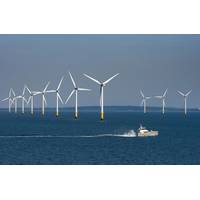Iraqis Selling Crude at $30 as OPEC Mulls Strategy
Iraq oil source sees flat to higher 2016 southern exports; BP says difficult to see large rise in Iraq output in 2016.
Iraq may increase oil output further in 2016, although less dramatically than this year, intensifying a battle for market share between OPEC members and non-OPEC rivals that has forced Baghdad to sell some crude grades for as little as $30 a barrel.
Iraq's output in 2015 has jumped almost 500,000 barrels per day (bpd), or 13 percent, according to the International Energy Agency (IEA). That has made Iraq the world's fastest source of supply growth and a key driver of surging OPEC production.
At most, that growth is likely to give way to a modest rise next year, easing downward pressure on prices that are close to a 2009 low. But a lifting of sanctions on Iran or an easing of violence in Libya could further boost OPEC supplies, without cutbacks by Saudi Arabia or other members.
"Stable to limited growth in output from Iraq would give some potential for an uptick in prices - if it were not for Iran," said Eugene Lindell, analyst at JBC Energy in Vienna. "Libya is another big wild card."
The southern fields produce most of Iraq's oil. Located far from the fighting in other parts of the country, they have kept pumping and seen record exports, most recently in July, when 3.064 million bpd was sold abroad.
Iraq plans to export 3.0-3.2 million bpd from the south in 2016, an Iraqi oil source told Reuters. He declined to forecast exports from Iraq's north, which restarted in late 2014 and have grown to about 600,000 bpd, despite tension between Baghdad and the Kurdistan region.
The scale of Iraq's growth this year surprised many observers. Moreover, the extent of any slowdown in 2016 and Iran's growth are on the minds of OPEC delegates heading into the group's Dec. 4 meeting on output policy.
"The Iraqis need to tell OPEC their plan for next year and the Iranians so far haven't told anyone how much they really can pump," an OPEC delegate said. "Production from these two countries is important for OPEC to make a decision."
Nonetheless, the delegate added, the Organization of the Petroleum Exporting Countries is unlikely to cut output.
LOWER INVESTMENT
Iraqi exports were held back by decades of war and sanctions. The growth follows investment by oil companies in the southern oilfields and the restart of northern exports.
Southern shipments jumped in June after Iraq split the crude stream into two grades, Basra Heavy and Basra Light, to resolve quality issues. This has allowed some companies such as Lukoil to increase production.
Other companies including BP, Royal Dutch Shell (RYDAF) , ExxonMobil and Eni operate in the southern oilfields under service contracts, whereby they are paid a fixed dollar fee for production.
The more than halving of oil prices from over $100 a barrel since mid-2014 and the government's costly battle against Islamic State have made it harder to pay oil companies, leading to spending cuts.
BP cut its development budget for the Rumaila oilfield by $1 billion to $2.5 billion this year, and the company is cautious on the prospect for significant extra Iraqi production in 2016.
"It is difficult to see a massive ramp-up in production next year," said BP's head for the Middle East, Michael Townshend.
Shell is not expecting any growth at the Majnoon field, where it is in charge. "At the moment we are looking at stable levels at Majnoon," said Shell's integrated gas director, Maarten Wetselaar.
Other executives working in southern Iraq also see flat production next year, and some warn of a dip by the second half of 2017 due to lack of investment.
Iraq has every incentive to keep pumping all it can as its actual oil prices are even lower than the benchmarks. The official selling price of Basra Heavy in Europe is $10.40 a barrel below Brent for December, and trade sources say cargoes are being sold a dollar or more below OSP - or less than $30. <BASH-OSP1-E>.
In Europe, Iraq has overtaken Saudi Arabia as the second-largest seller after Russia, and Iran has already lined up buyers to purchase its crude when sanctions are lifted, the IEA says, likely keeping prices under pressure.
"For this reason, producers are likely to grow still more competitive on pricing," the IEA said.
Smooth progress in Iraq's exports is not certain. An escalation of the dispute between Baghdad and Erbil could affect northern shipments, although supplies have risen despite some sabotage attacks and tensions. In purely technical terms, this growth could continue next year, traders say.
"Out of Basra, we don't see more than 3.2 million barrels a day of exports," JBC's Lindell said. "From the north, that's where the surprise could come from."
By Alex Lawler and Rania El Gamal











